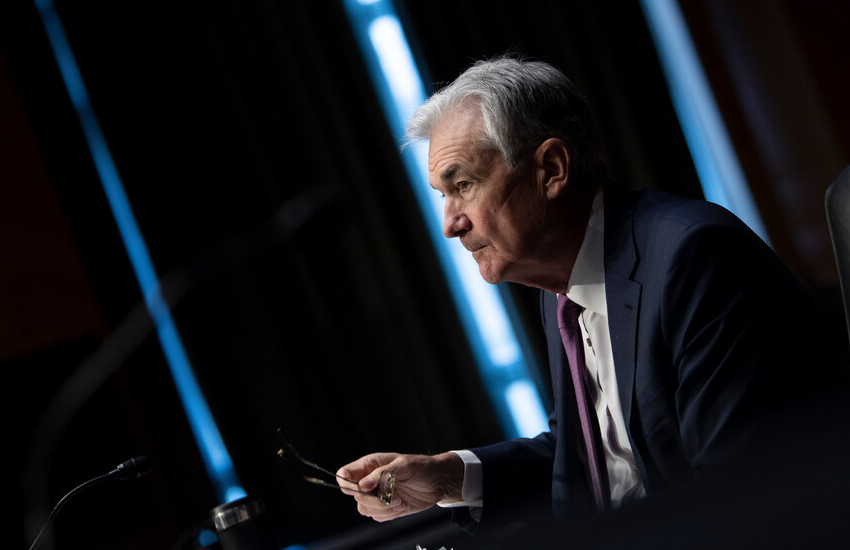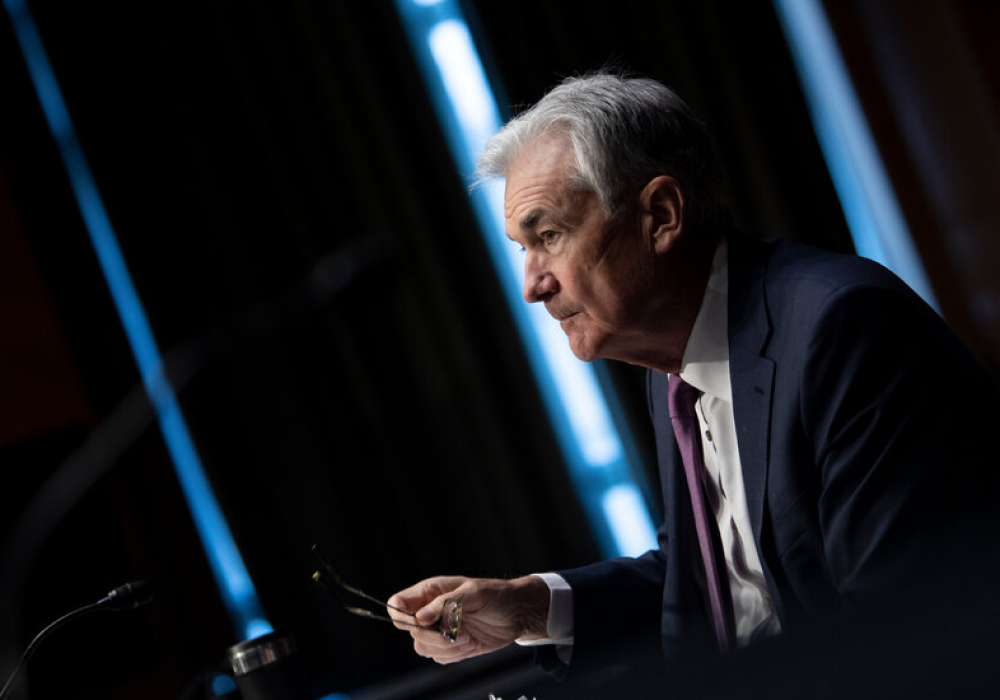Jerome H. Powell, the Federal Reserve chair, said that a rapidly-healing economy no longer needed as much help from the central bank and emphasized that controlling inflation — which he and his colleagues can do by raising interest rates — would be a critical part of setting the stage for a long and stable expansion that boosts workers.
Mr. Powell, who is testifying before members of the Senate Banking Committee on Tuesday as he seeks confirmation for a second term as chair, confronts a complicated economic moment as he moves toward another four-year stint as head of the world’s most powerful central bank.
The economy is growing swiftly, but it has been buffeted by repeated waves of virus and by a surge in inflation that has proved stronger and longer lasting than economists had expected. Workers are finding jobs and winning wage increases, but the rising costs of housing, gas, food and furniture are pinching shoppers and tanking consumers’s confidence.
The Fed is charged with maintaining price stability, and its officials have recently signaled that they could raise interest rates several times this year to try to cool the economy and prevent rapidly rising prices from becoming permanent. Mr. Powell — whom President Biden has nominated to a second term in his job — reiterated that commitment on Tuesday.
“If we see inflation persisting at high levels longer than expected, if we have to raise interest rates more over time, we will,” Mr. Powell said. “We will use our tools to get inflation back.”
But the central bank also has a second mandate: It is supposed to guide the economy toward full employment, a situation in which people who want to work and are able to do so can find jobs. Cooling off the economy can slow hiring, so trying to foster a strong labor market and trying to set the stage for a strong labor market can require a balancing act for policymakers.
Mr. Powell squared the two goals in his testimony, suggesting that keeping price gains under control will be critical for achieving a sustainably strong labor market.
What to Know About Inflation in the U.S.
“High inflation is a severe threat to the achievement of maximum employment,” Mr. Powell said.
If rapid price gains start to become “entrenched in our economy,” the Fed might have to react starkly to choke off runaway inflation and risk touching off a recession, Mr. Powell said. To avoid a painful policy response and to instead set the stage for a strong future labor market, it is important to control inflation, he indicated.
“That’s going to require us to use our tools, to the extent that they work on the demand side, while we also expect some help from the supply side,” Mr. Powell said.
“Supply” is how many goods and services companies are able to produce. Supply has been struggled to catch up with booming demand as the economy has reopened from the pandemic, as shipping routes are clogged, factories shut down amid virus outbreaks and employers struggle to hire to ramp up production. The “demand side” of the economy is how much people want to buy and is the part of the economy the Fed’s policies primarily impact in the near-term.
Economists increasingly expect Fed officials to make three or four interest rate increases in 2022, moves that would make borrowing expensive for households and businesses and slow down spending and growth. That could, in turn, slow hiring, keep wages from growing as swiftly, and hold down prices over time as people shop less.
The Fed’s rate increases would come on top of other moves the Fed is making to keep the economy from overheating: Officials are slowing down the big bond purchases they had been using to lower longer-term interest rates and stoke growth, and policymakers have signaled that they might begin to shrink their bond holdings this year.
If the Fed trims those balance sheet holdings, that will reinforce the move higher in interest rates, cooling off the economy further.
“The committee hasn’t made any decisions about the timing of any of that — I think we’re going to have to be both humble and a bit nimble,” Mr. Powell said.
He noted that while all members of the Fed’s policy-setting committee expect to raise interest rates this year, how many increases the central bank actually makes will depend on how the economy evolves at an uncertain moment.
Inflation F.A.Q.
What is inflation? Inflation is a loss of purchasing power over time, meaning your dollar will not go as far tomorrow as it did today. It is typically expressed as the annual change in prices for everyday goods and services such as food, furniture, apparel, transportation costs and toys.
What causes inflation? It can be the result of rising consumer demand. But inflation can also rise and fall based on developments that have little to do with economic conditions, such as limited oil production and supply chain problems.
Is inflation bad? It depends on the circumstances. Fast price increases spell trouble, but moderate price gains could also lead to higher wages and job growth.
Can inflation affect the stock market? Rapid inflation typically spells trouble for stocks. Financial assets in general have historically fared badly during inflation booms, while tangible assets like houses have held their value better.
The prospect that interest rates are likely to start rising soon has unnerved stock investors lately. Higher rates discourage risky investments like stocks, and can curb corporate profit growth. Wall Street’s major benchmarks moved between losses and gains as Mr. Powell spoke. The S&P 500 was slightly higher just before midday.
The Fed’s recent and decisive move toward inflation-fighting mode could be shored up by an inflation report, slated for release on Wednesday, that is expected to show the fastest growth in consumer prices since June 1982.
Lawmakers emphasized that they hoped to see a continuation in the nation’s strong labor market recovery — which last month drove unemployment back below 4 percent.
But Republicans, including Senator Patrick J. Toomey of Pennsylvania, worried that the Fed might have moved too slowly to counteract price gains thanks in part to a new, employment-focused policy approach Mr. Powell ushered in.
“I worry that the Fed’s new monetary policy framework has caused it to be behind the curve,” Mr. Toomey said. But he then praised the Fed for adjusting its stance as conditions have evolved, and inflation has shown signs of sticking around.
The Fed had initially forecast that inflation would fade, but it — like many private sector forecasters — got that wrong.
“We’re not really seeing, yet, the kind of progress essentially all forecasters really thought we’d be seeing by now,” Mr. Powell said, at least when it comes to snarled supply chains.
“People want to buy cars — carmakers can’t make any more cars, because there are no semiconductors,” he said, emphasizing what an unusual period the pandemic has been. “That’s never happened.”










